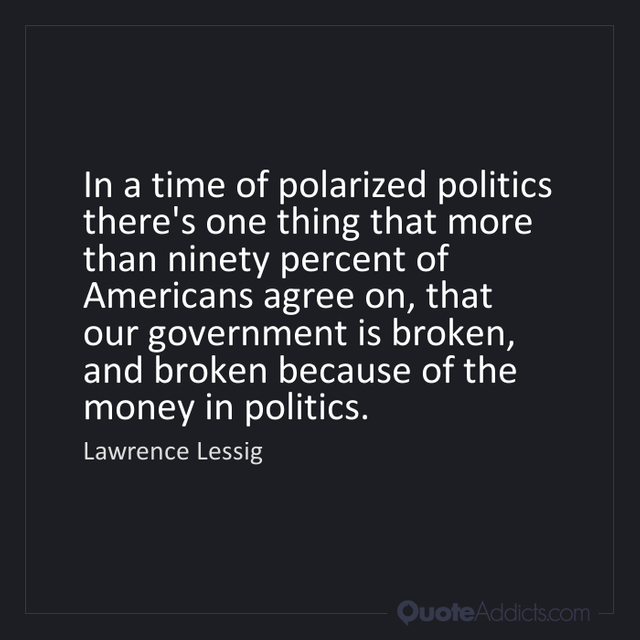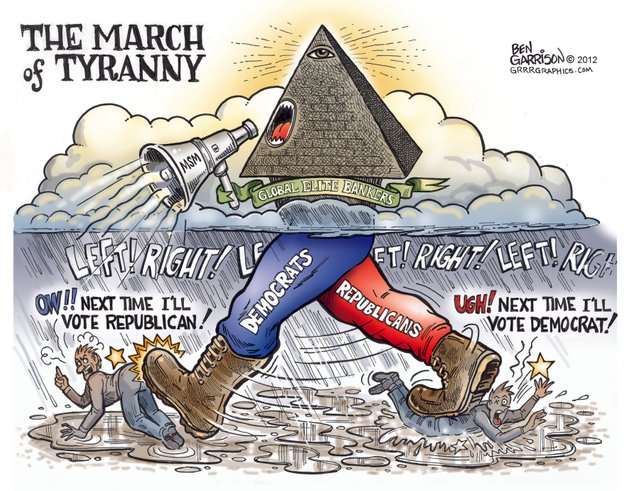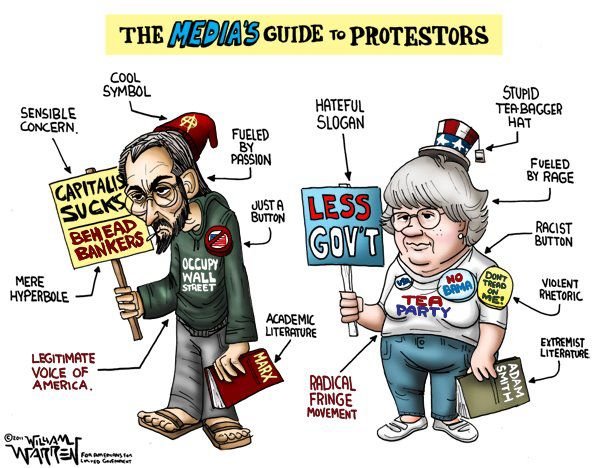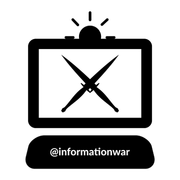Towards Voluntaryism (Part 21)
3.4. Government: Revision of Campaign Financing Laws & Affiliation Disclosure
Towards Voluntaryism (Part 21)
Revision of Campaign Financing & Affiliation Disclosure
The following proposed legislation is intended to limit the impact of private funds on elections for public office. This is to be achieved by establishing a jurisdictional campaign chest financed by taxation and/or private donations, as decided by the relevant constituency, that is then divided equally among contenders for office. Further, barriers to candidacy are reduced by eliminating the obligation to be part of a political party and the denotation of parties are to be removed from the ballots. Further, advertising by political action groups or private interests must be clearly marked as such.
The goal of Article 3 is to transform election landscapes to focus on the message of candidates for public office rather than allowing for campaign war-chests to unduly influence elections. The Public Campaign Fund is enacted with the intent of promoting equitable access to potential voters and to transform elections from financial contests into contests of ideas. If anyone is convinced their ideas are the best ideas, there is no reason for competing ideas not to have an equal platform. The reason this is deemed necessary is because, as the record shows, elections are almost always won by those who spend the most. The public is aware money unduly influences election and 90% believe reform is needed and a whopping 80% believe politicians are simply too corrupt to actually do anything about it. The public is right on both points.
To those ends, I propose the following:
Article 3: Revision of campaign financing laws for public office, establishment of a Public Campaign Fund and its use, increased transparency of private funding of political advertising and increased access to the ballot.
The Public Campaign Fund
§3.1. A Public Campaign Fund (hereafter PCF) shall be established for each elected office. Funds in the PCF shall be administered by the treasurer of the appropriate jurisdiction and constituency. Funds from the PCF shall be distributed equally among contenders' campaigns for public office. This means that each contender and their campaign shall receive the exact same funding, regardless of number of people involved.
§3.2. Funds from the PCF shall be disbursed periodically during the campaign season, with the Treasurer's office determining the number of disbursements and their timing, with the final disbursal taking place no later than 30 days prior to the vote.
§3.3. All funds dispersed from the PCF to electoral candidates must be used in pursuit of the goal of being elected to office. This specifically includes a minimum wage allowance for non-volunteer campaign staff, advertising and staff travel costs as well as the arrangement of speaking engagements. Full, complete, transparent and publically accessibly records of campaign expenditures, updated weekly, must be made available online without the necessity of registration or log-in to view.
§3.4. A general vote for each jurisdiction shall be held to determine how funding for the PCF shall be achieved (e.g. donations, taxation) and the maximum amount that candidates' campaigns may receive from the PCF. These votes must address funding for all municipal, county, state and federal elections. At the state level, the vote shall determine the maximum funding that the state will provide to contenders for federal office (e.g. President of the United States) via popular vote.

image source
§3.5. Private donations to individual political campaigns or contenders for office are no longer permitted and any such contributions, gifts or donations shall be deposited into the Public Campaign Fund and distributed as per §3.1., §3.2., & §3.3.
§3.6. As contenders for office drop out from any given race during the campaigning season, distribution of available funds shall be adjusted accordingly.
§3.7. All funds of the PCF that were not expended by contenders' campaigns are to be returned to the PCF and either disbursed to the remaining candidates for office (in the event the campaigns are ongoing) or held in trust by the PCF for the next election season. These moneys shall not be used for speculation, investment or any other purpose than to fund election campaigns.
§3.8. No private political parties shall be eligible to receive any funds from any public purse for any reason whatsoever. Political parties are private organizations and, as such, shall be required to be completely self-financing with no financial subvention, support or promotion via government funds.
§3.9. Contenders for public office are prohibited from utilizing their own financial resources to fund their election campaigns. Contenders for public office may however use their own financial resources to collect the necessary signatures and to file the necessary paperwork to enable them to run for office and to apply for campaign funding. Similarly, aspiring contenders for office may accept the support of others to collect the necessary signatures and to file the necessary paperwork to enable them to run for office and to apply for campaign funding.
Private Affiliations and Campaigns for Public Office
§3.10. Within the first 30 days of any campaign and no less than 30 days prior to the vote, all candidates for public office must make a full and complete disclosure of their financial assets and sources of revenue.
§3.11. All third-party advertising for public servant campaigns (i.e. privately funded advertising) must clearly state who paid for it. In video form (e.g. television, internet, cinema), the attribution must comprise a minimum full-screen duration of 5 seconds prior to the advertisement itself in large, clear, easy to read English text. In print form (e.g. newspaper, magazine, internet, signage) the attribution must be no less than one fourth (1/4 i.e. 25%) of the total print space of the advertisement and provided in large, clear, easy to read English text.
§3.12. All corporate media coverage of election candidates that departs from a strictly factual narrative (e.g. use of adjectives and adverbs) must be clearly labeled as "opinion" and the party, political affiliation or individual interest of the writer must be provided. In the event of a written text, this information must be provided directly after the title of the piece at the beginning of the text. In video, this information must be provided as a permanent banner, clearly legible, along the bottom of the viewing area, in audio formats (radio, podcast etc.) this information must be provided both at the beginning and the end of the broadcast.
§3.13. Candidates for public office must publically declare their current and prior membership in any and all organizations, clubs, groups, societies, brotherhoods, institutes or any other such organization that they have joined. Failure to do so shall disqualify the candidate from the ballot. If omissions, are ascertained following the election, the public servant shall be dismissed from office within 72 hours if said omitted group advocates any behavior contrary to or subversive of the spirit of the founding documents of the United States (Declaration of Independence, Constitution, Bill of Rights).
§3.14. Within one calendar year of the end of a public servant's term in office, said public servant is required to make a full and complete disclosure of their financial assets and sources of revenue for the tenure of their term in office.
§3.15. Intentional subversion on the part of the contender of the terms defined in §3 shall immediately disqualify them from the ballot and render them ineligible to hold public office until the end of their days.

image source - Support Ben Garrison here!
§3.16. No affiliation, membership or participation in any political party shall be required to gain access to the ballot or stand for election. Individuals that are not associated with any political party must have equal access to the ballot to safeguard the principle of representative governance.
§3.17. The right to stand for election and to be present on the ballot of any jurisdiction shall be determined solely by the provision of sufficient signatures of potential voters, the minimum number of which shall not exceed 1% of the total vote most recently cast for the office contended (i.e. If 1 million voters voted for a given office, it would require a candidate to supply a total of 10,000 signatures to get their name on the ballot). Signatures may be gathered from any relevant jurisdiction.
This is very much a working proposal and I welcome feedback. I am trying to find the correction formulation for the proposed legislation so that it can ultimately be introduced as a ballot measure. The following sections will postulate changes to public servant salaries.
Next: [Towards Voluntaryism (Part 22) - Public Servant Salaries]
...

.
.
.
Shot with a golden arrow,
Cupid Zero
.
I consider requests to write on a topic of your choice.
.
Don't forget to upvote, follow and resteem! Comments always appreciated.
.
.
.
.
.
.
.
.
.
.
.
.
.
If you aren't on Steemit, please consider supporting my work with a gift of:
Bitcoin: 1fruAGn9JcKqJJscreUpS2XurfLzksBe8
Litecoin: LQf19ExcdSFDjYj6NktRgzBnJ7NScVgikA
Ethereum: 0xEe3005b1D2D8963a85E1Ca4ff511acCd98A1E29D


That would be good for maintaining equality of conditions for the candidates to spread the message thru media. But i believe that something must be done to avoid the power of SuperPACS. They spend their funds as private entities supporting candidates but in theory they're not part of the candidate's campaign.
How can that be controlled?
Just for consideration.
My proposed solution for superpacs was to phrase this clause as targeting "third-party advertising", referring to the "payment for services by someone other than the beneficiary". Superpac purchasing of ads, I believe, should fall into this category.
Admittedly, this doesn't stop superpacs from buying unlimited advertising, but it does provide some greater degree of transparency to the public that is exposed to it. Compare the section on disclosure rules here.
These days the microprint at the bottom of paid-for news and advertising disguised as objective reporting is so small most people totally miss it. And since most people don't actually read to the end, it is more important than ever that intentional bias is revealed as early and as clearly as possible.
Thanks for your feedback!
Curated for #informationwar (by @truthforce)

Relevance: Government Is Broken, Yet MSM Demonizes Those Trying To Fix it
Our Purpose
good post